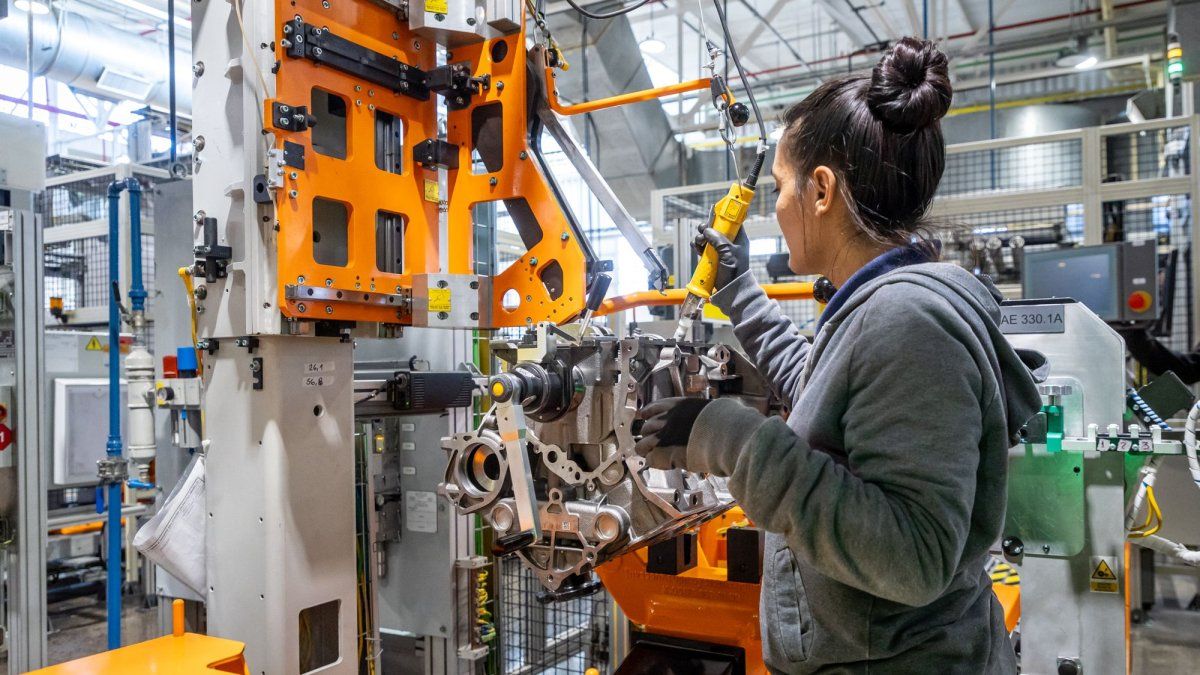The Minister of Economy, Luis Caputo, announced the reduction of the PAIS Tax rate with the aim of deepening the price slowdown. Businessmen have different opinions on the effect that the measure will have, although they all agree on one point: they demand concrete policies that are part of an industrial plan.
“What we have been seeing is that the reduction of the PAIS Tax generates relief in terms of inputs and a reduction in costs.However, with the current exchange rate, an increase in imports generates fear among the partners for the entry of final products, produced at Chinese scales and costs,” said the president of the Rosario Industrial Region, Roman Guajardo. In his city, Santa Fe, the latest figures from the sector remain worrying: the level of industrial production in June showed a new and pronounced fall of 10.9% year-on-year, accumulating a decrease of 1% in the first half of the year. 13% compared to the same period last year.
With the initial aim of improving costs and overcoming these falls, the PAIS Tax rate that grew in July by 139% year-on-year in real terms according to IARAFwill be reduced from Monday, September 2. Paradoxically, the Government chose the date on which the Industry Day to implement the discharge.
In turn, the Government announced through the X account of the Ministry of Economy the elimination of obstacles to the import of steel and other inputs for the economy, “with the aim of encouraging competition and lowering costs”, they highlight in the post. These last two announced measures will be communicated in greater detail at the event that the Argentine Industrial Union (UIA) will lead to celebrate September 2.
Doubts among businessmen about the effects on the industry
However, eight months into the first year of management, The question that runs through the chats between businessmen is whether these measures will have a direct benefit on the industry..
Are the latest announcements part of an industrial plan? Will the Government maintain an industrialist line that promotes the advantages of a sector that has a significant impact on the domestic market, but also shows export potential? These are questions that generate debate within the sector, but without a concrete answer.
For the moment, that doesn’t seem to be the case for Guajardo.It is good that taxes are being lowered, but we should simultaneously look at other measures to protect and encourage the growth of our production and work. as countries like Brazil and the major powers do. In the US presidential campaigns, caring for one’s own has played a leading role,” the industrial leader compares.
During the event that is currently taking place at La Rural by the Hotel and Gastronomic Business Federation, HotelGabusinessmen from the sector talk in the corridors about the same agenda. “With the recession that we are seeing, cutting the PAIS Tax is an opportunity to lower prices,” reflects one of those present. “When do prices go down here?? If the economy recovers, they will at least stay where they are.“, his colleague refutes.
For gastronomy, especially May and June “They were very bad months“, summarize some businessmen who attended the event, but August It turned out a little better, “although very weak compared to last year.”
The second half of 2023 onwards was marked by measures to boost consumptionin an electoral campaign context, so the year-on-year comparison could show a more significant contrast in some indicators.
However, the benefit of trade openness does not have an immediate effect on the supply of products for sale.It is not so easy to import, it takes time, logistics and money,” explains a gastronomist at his stand.
This reality is also seen in other sectors of the internal market, such as supermarkets, for example. In hypermarkets, imported clothing items that are on sale are usually ordered a year in advance.
Furthermore, despite the benefits provided prior to the reduction of the PAIS Tax, a franchisee who attended HotelGa maintains that the arrival of imported products It is not yet significant.
In this sense, it resumes the sale of imported lemons on the shelves during 2017, as a reference photo to warn that, if you see the same or similar thing again, “There we will be in trouble”.
Fear of increased imports
Not everyone waits until that point to notice the consequences of the cut in the PAIS Tax.We are all going to become importers, we are talking about the Argentine import union. We cannot compete against this.“, circulated in a WhatsApp chat in the last few hours.
The message was answered with the experience of another merchant: “I brought merchandise from China, bags for bookstores. Without people or machines. Just bringing merchandise.”
In this context, more than one industrialist wonders what the future holds for the sector. “Argentina needs to recover industrial production, it is a country that has become commercial,” reflects a participant in the event held at La Rural. But first, he highlights the basics: “We need consumption to be reactivated. Today the interior is at a standstill. The wheel has to turn again.“, he concludes in dialogue with this medium.
Source: Ambito




